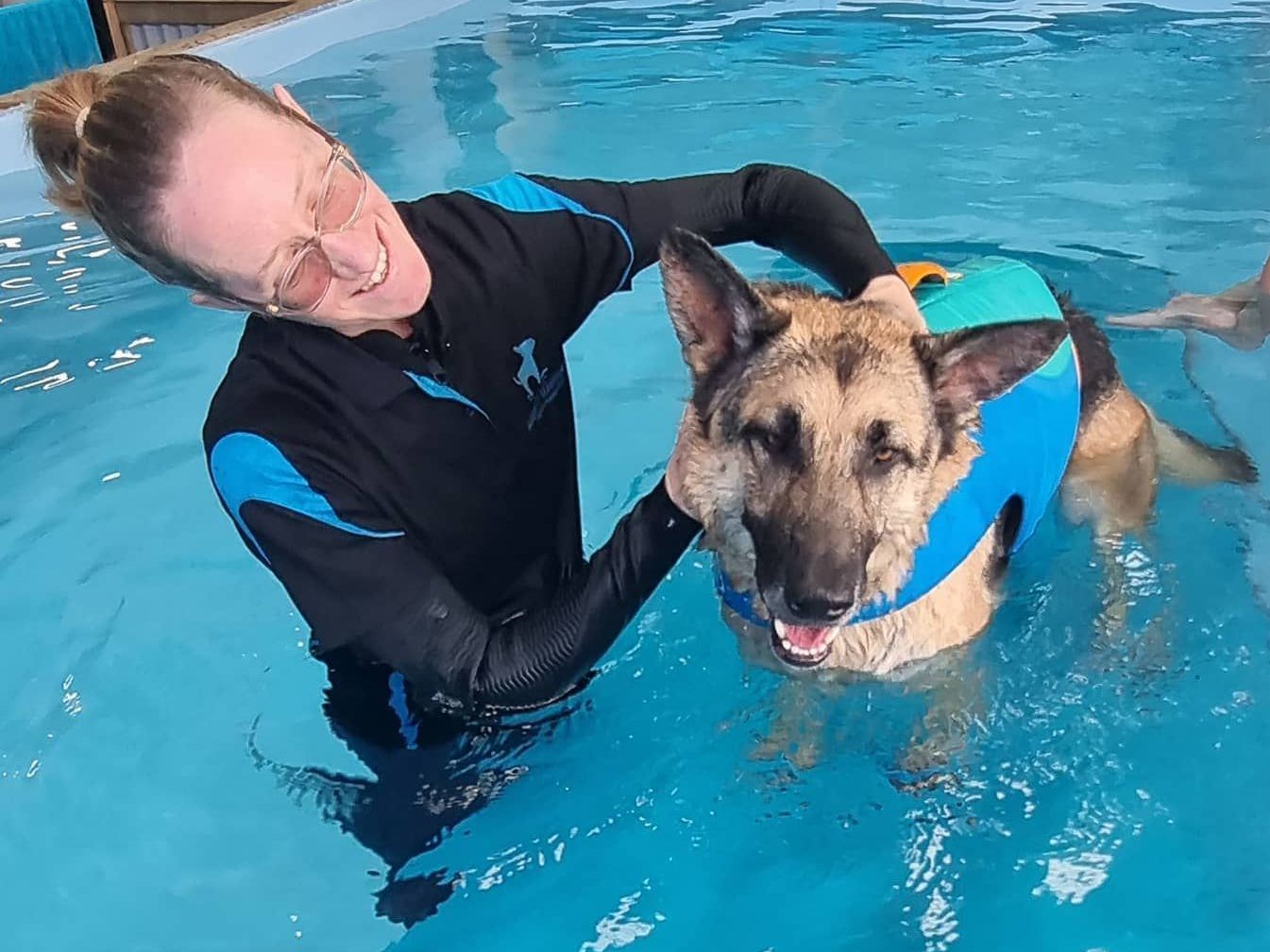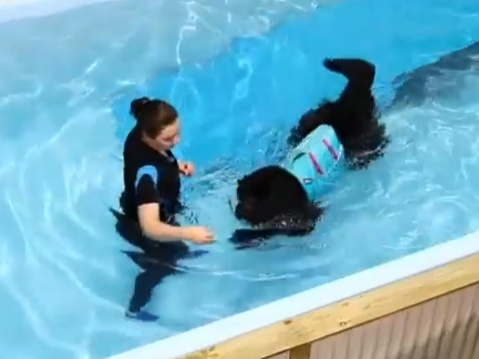The Advantages of Enlisting a Qualified Canine Hydrotherapist to Teach Your Dog to Swim
Swimming is not only a fun and enjoyable activity for dogs but also offers numerous health and behavioural benefits. While many pet owners may attempt to teach their dogs to swim on their own, enlisting the expertise of a qualified canine hydrotherapist can significantly enhance the experience for both the dog and the owner. In this blog, we will delve into the advantages of using a professional hydrotherapist to teach your dog to swim and explore how this specialised approach can promote your dog's overall well-being.

Expertise and Experience
Qualified canine hydrotherapists possess specialised training and experience in working with dogs in aquatic environments. They understand the nuances of canine anatomy, behaviour, and movement in water, ensuring a safe and effective learning experience for your companion. Hydrotherapists tailor their approach to each dog's individual needs, taking into account factors such as breed, size, age, and physical condition. Their expertise helps minimise the risk of injury and maximises the benefits of swimming.
Safety First
Water can pose potential risks for dogs, particularly if they are not familiar with swimming. Canine hydrotherapists are well-versed in water safety protocols and can create a controlled and safe environment for your dog's swimming lessons. They use specialised equipment, such as float coats and flotation devices, to ensure your dog's safety throughout the learning process. This level of supervision and care minimises the chances of accidents and allows your dog to build confidence in the water gradually.
Rehabilitation and Fitness
Swimming is an excellent low-impact exercise that offers a range of benefits for dogs, including rehabilitation and fitness. Canine hydrotherapists can design customised swimming programs to help your dog achieve water confidence. The buoyancy of water reduces stress on joints, promotes muscle relaxation, and facilitates improved mobility. Hydrotherapy sessions are also an effective way to help dogs regain strength and stamina, making it an ideal option for overweight or senior dogs.
Behavioural and Mental Well-being
Swimming isn't just about physical exercise; it also has a positive impact on a dog's mental well-being. Dogs that are anxious, hyperactive, or have behavioural issues can benefit from hydrotherapy. The soothing nature of water helps reduce stress and anxiety, promoting relaxation and improved mood. Qualified hydrotherapists use positive reinforcement techniques during swimming lessons, creating a positive association with water and helping to build trust between the dog and the handler.
Bonding Experience
Teaching your dog to swim through a qualified hydrotherapist also offers a unique bonding experience between you and your companion. Hydrotherapy sessions provide an opportunity for you to actively participate in your dog's learning process while observing their progress and improvements. Additionally, the guidance of a hydrotherapist allows you to focus on supporting your dog's physical and emotional well-being, deepening the bond between you and your canine companion.

Conclusion
Enlisting a qualified canine hydrotherapist to teach your dog to swim offers a range of benefits that extend beyond mere physical exercise. With their expertise, experience, and emphasis on safety, hydrotherapists create a positive and effective learning environment for dogs of all ages and conditions. From rehabilitation to behaviour improvement and enhanced bonding, the advantages of utilising a professional hydrotherapist make the decision to teach your dog to swim an investment in their overall well-being and happiness.










